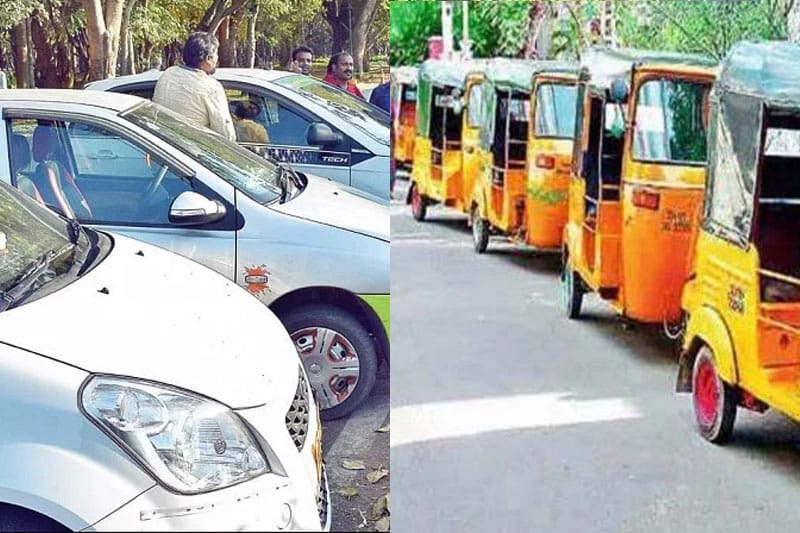Basic Fare for Autorickshaws and Taxis Hiked from February 1
The basic fare for CNG-run autorickshaws and black-and-yellow taxis in the Mumbai Metropolitan Region will increase by Rs 3 starting February 1. The revised fares apply to CNG vehicles only and will be effective once meters are recalibrated.

The basic fare for CNG-run autorickshaws and black-and-yellow taxis in the Mumbai Metropolitan Region will increase by Rs 3 starting February 1. The revised fares apply to CNG vehicles only and will be effective once meters are recalibrated.
Mumbai: In a move that will affect daily commuters in the Mumbai Metropolitan Region (MMR), the transport authority has approved a fare hike of Rs 3 for CNG-run autorickshaws and black-and-yellow taxis, effective from February 1. The increase in fares aims to adjust for rising operational costs and will affect a wide network of taxis and autorickshaws across the region.
Table of Contents
Fare Revision Details
According to a statement from the Mumbai Metropolitan Region Transport Authority (MMRTA), the basic fare for autorickshaws will rise to Rs 26 from the current Rs 23. Meanwhile, black-and-yellow taxis will see their starting fare increase to Rs 31 from Rs 28. Additionally, the fare for blue-and-silver AC cool cabs will also go up, with the new base fare set at Rs 48 for the first 1.5 kilometers, an increase from the previous Rs 40.
The fare hike applies only to CNG-run vehicles, which form the majority of autorickshaws and taxis in the region. A small number of petrol-operated vehicles will not be affected by this revision. However, the new rates will only be implemented once vehicle meters are recalibrated, a process that must be completed by April 30, 2025.
Also Read: Maharashtra Explosion: 8 Dead as Roof Collapses in Ordnance Factory Blast
Formula for Fare Revision
The fare revision follows a formula established by the B C Khatua panel, which was set up by the Maharashtra government in 2016 to determine fare hikes for taxis and autorickshaws. The panel’s formula takes into account factors such as the average vehicle price, the consumer price index, interest rates for vehicle loans, and other related costs. The last fare revision was made in September 2022, and this new hike comes after more than two years.
The MMRTA’s decision to implement this fare hike comes after a meeting chaired by transport secretary Sanjay Sethi. The hike is seen as a necessary adjustment to ensure the continued viability of CNG-run taxis and autorickshaws, which have faced increased operating costs over the past few years.
Impact on Commuters and Drivers
For commuters, the increase in fares means a slightly higher cost for short trips in the city. However, taxi and autorickshaw drivers are likely to see a boost in earnings, which could help offset rising expenses related to fuel and maintenance.
In addition to the fare hike, the MMRTA also approved the establishment of new stands for share taxis and share auto rickshaws, which could provide more options for passengers and drivers.
Mandatory Meter Recalibration
The MMRTA emphasized that the new fare rates can only be applied once vehicle meters are recalibrated to reflect the updated tariffs. Drivers will be required to get their meters adjusted between February 1 and April 30, 2025. Until this recalibration process is completed, the existing fare tariff cards will remain in effect.
This fare hike is expected to affect millions of daily commuters in the MMR, with authorities urging both drivers and passengers to ensure that the new fares are properly reflected in the vehicles’ meters.

